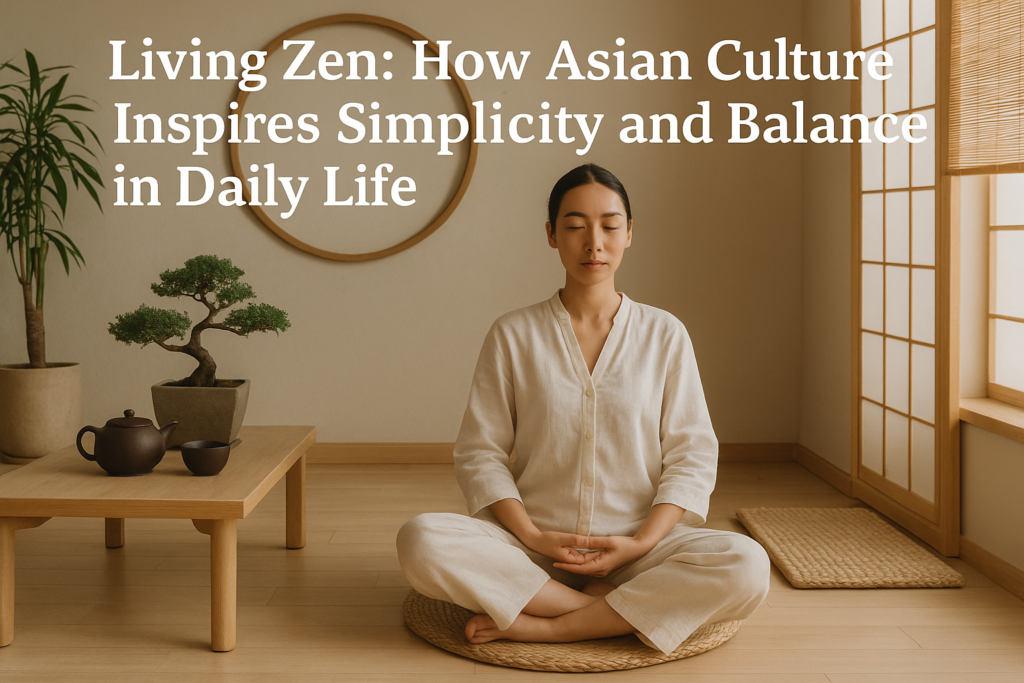In a fast-paced world full of distractions and constant busyness, many people are turning toward lifestyles that promote simplicity, mindfulness, and balance. Asian culture, with its deep-rooted philosophies and centuries-old traditions, offers a unique perspective on how to live a harmonious life. The concept of “Living Zen” encapsulates this approach, emphasizing tranquility, intentionality, and a mindful connection to one’s surroundings.
Zen, originally a school of Mahayana Buddhism that developed in China and later flourished in Japan, has long influenced how people view life and its challenges. At its core, Zen teaches the importance of being present in the moment, accepting things as they are, and cultivating inner peace. These principles have transcended religious contexts to shape various aspects of daily life, from fashion to home design, and even to personal routines.
One of the key elements of Living Zen is simplicity. This doesn’t mean deprivation or austerity but rather focusing on what truly matters and eliminating unnecessary clutter both physically and mentally. Asian cultures often embrace minimalism in their aesthetic expressions, favoring clean lines, natural materials, and subtle colors that evoke calmness. This can be seen in traditional Japanese architecture with its open spaces and natural light, or in the Korean concept of “hanok” homes that blend with nature seamlessly.
Applying this philosophy to everyday life encourages people to slow down and appreciate the present. Mindfulness practices such as meditation, tea ceremonies, or mindful eating, which are deeply rooted in Asian culture, guide individuals to be aware of their actions and environment. These rituals promote a balance between activity and rest, helping to reduce stress and increase clarity.
Fashion is another area where the principles of Zen and simplicity shine through. Asian lifestyle often values garments that are comfortable, functional, and thoughtfully crafted, rather than flashy or overly ornate. Natural fibers like cotton, silk, and linen are preferred, and the color palette tends to lean towards earth tones and muted shades. This approach encourages sustainability and a more intentional wardrobe, aligning with the idea of living with less but better.
Moreover, the concept of balance is central to Asian culture and is reflected in the harmony between nature and human life. Practices like Feng Shui in China or the Japanese principle of “wabi-sabi” celebrate imperfection, impermanence, and the beauty of natural aging. These ideas remind people to accept change gracefully and find peace in the flow of life, rather than resisting it.
Incorporating Living Zen into daily routines can have profound effects on mental and physical well-being. By prioritizing simplicity, mindfulness, and balance, individuals create space for creativity, connection, and genuine happiness. This lifestyle encourages a deeper appreciation for small moments a cup of tea, a quiet walk, or a moment of stillness that often get overlooked in the rush of modern living.
Ultimately, Living Zen invites us to slow down, embrace what is essential, and find harmony within ourselves and our surroundings. Asian culture’s timeless wisdom offers practical guidance for anyone seeking a more meaningful and balanced life in today’s chaotic world.

